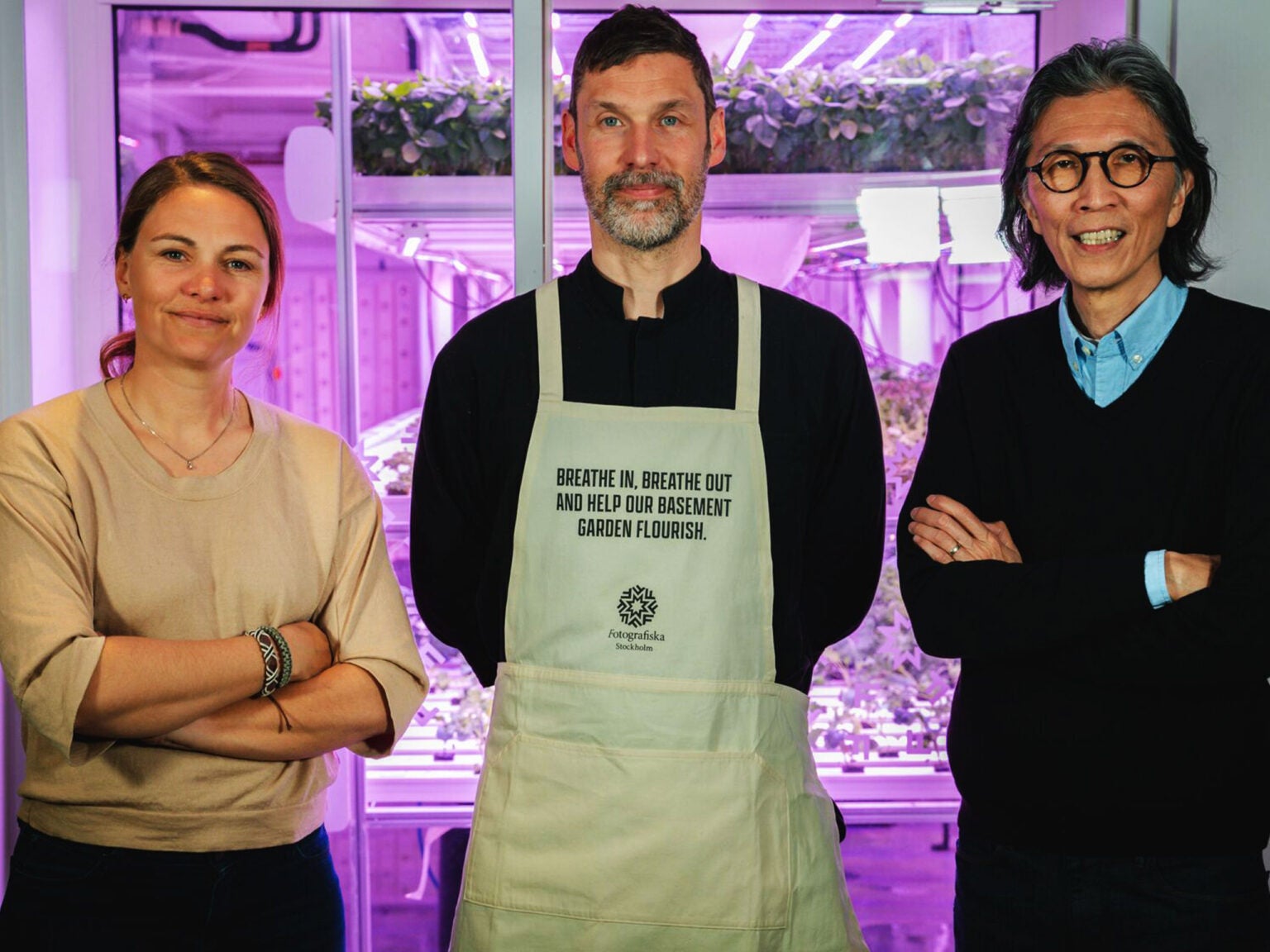
The Planet First programme initiated by the H&M Foundation and The Hong Kong Research Institute of Textiles and Apparel (HKRITA) has resulted in the Carbon Looper project, which is described as a game-changer in terms of what it could do to help the clothing industry fight global carbon dioxide (CO2) emissions.
The clothing, which is currently being tested by restaurant staff at Fotografiska Stockholm, Sweden, is treated with an amine-containing solution that makes the surface of the fabric capture carbon dioxide from the surrounding air.
The carbon dioxide can then be released from the fabric by being heated to 30-40°C, in a greenhouse where it can naturally be taken up by the plants during photosynthesis.
The amount of CO2 that is captured by a garment per day, is said to be equivalent to a third of the amount that a tree absorbs per day. And after only three ‘loop-cycles’, the garment has effectively climate-neutralised itself – and instead starts to have a climate positive effect.
The restaurant was chosen to test the clothing, which takes the form of an apron, because its famous hydroponic garden in the basement is said to serve as an excellent CO2 release facility.
The team behind the innovation is keen to find out how to improve and scale this technology in parallel as the aim of the collaboration is to push the entire fashion industry toward becoming planet positive instead of depleting its resources.

US Tariffs are shifting - will you react or anticipate?
Don’t let policy changes catch you off guard. Stay proactive with real-time data and expert analysis.
By GlobalDataThe H&M Foundation’s strategy lead Christiane Dolva explains: “We want to find new solutions that can enable the fashion industry to become planet positive. And since change needs to happen now, we focus on impatient research to innovate at speed, with rapid iterations to identify disruptive and scalable solutions.”
She believes the Planet First programme with HKRITA is a perfect example of how to inspire industry-wide change by openly sharing proof of concepts.: “We don’t have time for the traditional and the slow, therefore we are not aiming for perfect but to get the solutions out of the lab as quickly as possible to be tested and improved, and to inspire others and spur collaborations that can ultimately lead to scale and adoption.”
HKRITA CEO, Edwin Keh, adds: “Anything we do in the lab is only useful once it gets out of the lab. The Carbon Looper is one of a series of projects we have been working on to see if we can achieve carbon neutrality for the textile, apparel and fashion industry. We will be monitoring this test at Fotografiska to see how we can improve the technology and develop more uses for it.”
The restaurant’s executive chef and planet keeper, Martin Wall, believes the innovation is a perfect match for his restaurant’s overall philosophy and ideal of creating a circular kitchen based on organic and locally grown dishes.
He says: “The project not only contributes to spiking our guests’ awareness around the climate crisis but is also inspiring evidence of the jaw-dropping research being done at the moment.”
Last month, H&M Foundation’s 2022 Global Change Award winner Biorestore launched a crowdfunding campaign for its laundry solution that restores old and worn garments to mint condition.



